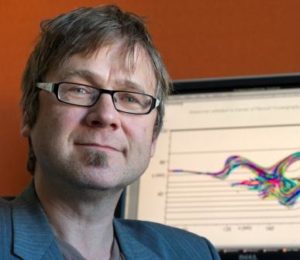
New research at Flinders has identified an area of upwelling – a site where complex natural dynamics bring up deep-sea water and nutrients to the sea’s upper layers – on the west coast of Tasmania.
Upwelling activity plays a vital role in the marine food chain globally, and the newly discovered site forms part of a major system along Australia’s southern coast that extends eastward from the Great Australian Bight.
Flinders University oceanographer Associate Professor Kaempf said a combination of ocean currents and winds acting in concert with undersea coastal structures is responsible for producing the upwelling along a substantial portion of Tasmania’s western coastal shelf
Associate Professor Kaempf’s research, which has been published in the scientific journal Ocean Science Discussion, brings together data on sea surface temperatures and prevailing winds with satellite imagery of phytoplankton to identify the site, which he has named the West Tasmanian Upwelling.
“The coincidence of conditions which produce the upwelling is seasonal, and while the episodes are often quite short-lived, their effects, in terms of providing a major input of nutrients to the marine food chain, are very important,” Associate Professor Kaempf said.
In addition to local effects, Associate Professor Kaempf said his research suggests that the upsurge of nutrients on the west Tasmanian shelf is also “injected” into Bass Strait.
The findings could change the understanding of the fundamentals of the area’s marine ecosystem, which at present attributes Bass Strait’s rich nutrient supply exclusively to influences from the East Australian Current.
“This is the first indication that there is a significant source of nutrients on the west Tasmanian shelf, which might also explain why the seas around King Island are so productive,” Associate Professor Kaempf said.

